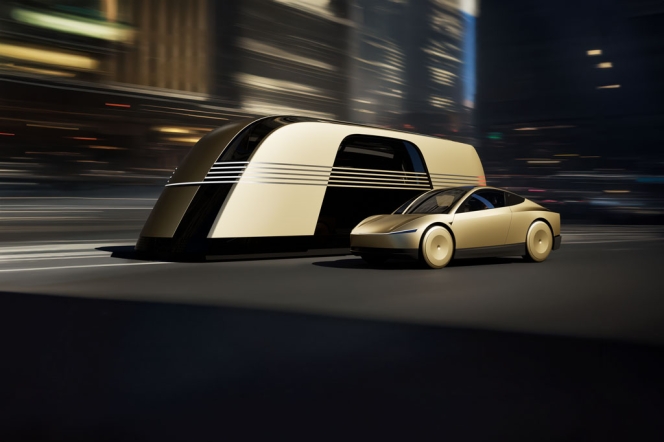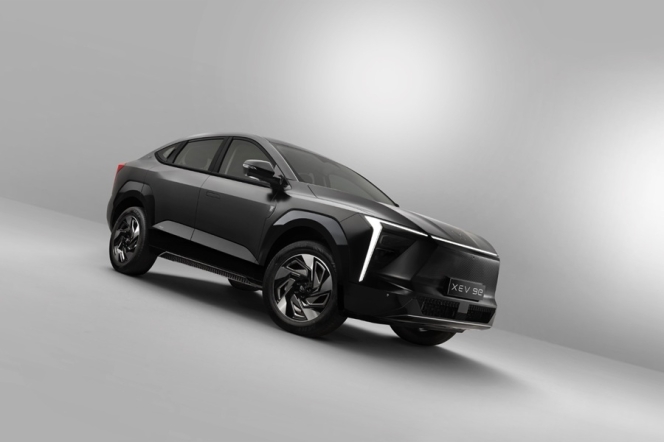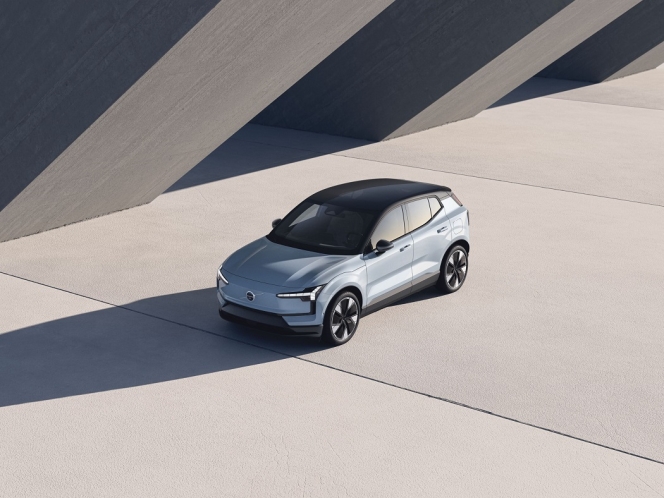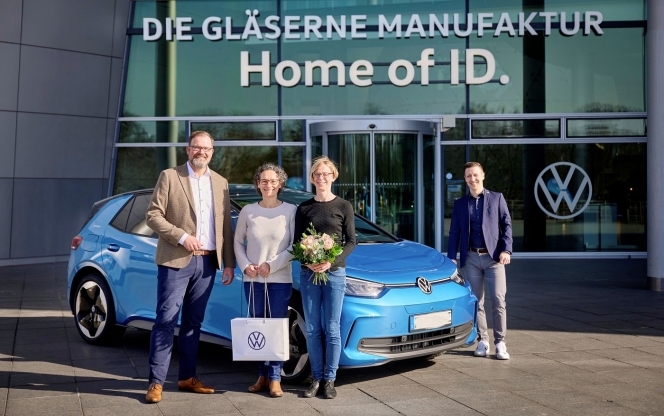Charging Infra, Govt Push And Battery Swapping Will Boost EV Adoption in 2025
- By Gaurav Nandi
- January 14, 2025

The adoption of electric vehicles (EV) in India is poised to see a boost in adoption numbers driven by a rapidly expanding charging network, growth in battery swapping models and government policies such as the PM e-drive.
The respective sector demonstrated strong momentum in 2024, with total sales reaching nearly 1.95 million units across segments. Industry experts see this growth trajectory continuing into 2025, supported by expanding charging infrastructure, battery swapping networks and favorable government policies.
Alluding to the performance of the sector in 2024 ICRA Corporate Ratings Senior Vice President Srikumar Krishnamurthy said, “Electric vehicles in India continued to gain traction in 2024 supported by factors like government incentives, changing consumer needs new product launches, technological advancements, etc. Nevertheless, the EV penetration levels remain modest, particularly in cars and trucks, though adoption in two-wheelers and three-wheelers and buses is better. The government’s policy measures remain supportive; the PM e-drive scheme is expected to aid faster EV adoption apart from the development of the EV manufacturing ecosystem. While the transition is gradual, the EV sector holds promise as a cornerstone for sustainable mobility, with significant growth potential in the coming years."
According to data from Vahan Dashboard 19,48,957 EVs were sold between January and December 2024. Electric two-wheelers dominated the market with sales translating to 1.2 million units followed by the three-wheeler segment that sold 6,94,466 units.
Meanwhile, the electric car segment continued to show steady progress with 99,848 units sold while the electric-bus sales experienced substantial growth increasing by 39% in CY2024, reaching 3,834 units.
Ola Electric dominated the two-wheeler segment with a 35.42 percent market share followed by TVS (19.49 percent), Bajaj (16.58 percent), Ather (11.08 percent) and Hero (3.78 percent).
In the three-wheeler passenger segment, Mahindra Last Mile Mobility led with approximately 10 percent market share, while Bajaj Auto demonstrated exceptional growth. The three-wheeler cargo segment saw Mahindra LMM maintaining leadership with about 11 percent market share, while Bajaj Auto showed impressive growth to capture 4.7 percent market share.
In the electric car segment, Tata Motors maintained dominance with roughly 62 percent market share, followed by MG Motor India at 22 percent, Mahindra & Mahindra (7 percent), BYD (2.85 percent), and PCA (2.19 percent), while in the electric bus segment, Tata Motors retained its leadership position with all major players showing significant sales growth.
2025 Outlook
Alluding to the sectoral outlook for 2025, Altigreen Propulsion Labs Chief Executive Officer Amitabh Sharan noted, “The electric vehicle industry in India stands at a transformative crossroads in 2025, with the market projected to reach USD 235 billion by 2030 at a remarkable CAGR of 49 percent. The sector will witness remarkable growth (especially in commercial vehicles) in 2025, driven by a combination of TCO benefits, technological advancements for better quality vehicles and driveability, and changing consumer perception towards EVs. However, the road to widespread EV adoption will need to overcome significant challenges viz-a-viz innovative vehicle financing, urban charging infrastructure, consistency in policy and regulatory framework, supply-chain localisation (for price parity with ICE) and very importantly skill development through industry-academia partnerships.”
Revfin Founder Sameer Aggarwal said, “2024 has been a defining year for India’s automotive sector, marked by accelerated adoption of electric vehicles, advancements in sustainability, and the integration of innovative technologies. Building on this momentum, 2025 is expected to be a year for EV adoption. With an intensified focus on developing robust EV charging infrastructure and scaling up battery-swapping networks, transitioning to electric mobility will become more seamless for consumers. Coupled with innovative financing models and targeted efforts to reach underserved markets, the industry is set to overcome accessibility barriers and make sustainable mobility a reality for all. Collaboration between automakers, policymakers, and technology providers will ensure a cohesive ecosystem, enabling India to lead the way in sustainable and inclusive mobility solutions.”
Godawari Electric Motors Director Hyder Ali Khan noted, “As we look ahead to 2025, we are excited about the robust expansion of our Eblu product portfolio, catering to the evolving needs of our customers. Additionally, we have some promising public and private orders in the pipeline, which will further accelerate our growth trajectory. We remain committed to driving innovation and sustainability in the EV sector and look forward to continued collaboration with our stakeholders to shape a cleaner and greener future for mobility.”
Zypp Electric Chief Executive Officer Akash Gupta revealed plans for 2025 along with the sector outlook and stated, “Looking ahead to 2025, Zypp Electric is committed to deploying 200,000 electric vehicles across the country in the next 12-18 months and we will double down on innovation, fleet expansion and partnerships to meet growing demand. We will focus on bolstering EV charging infrastructure, enhancing intelligent fleet management, and contributing to India's net-zero goals. Together, we aim to revolutionise last-mile logistics and make green mobility the norm for businesses and communities alike.”
On the components front, Automotive Component Manufacturers Association Director General Vinnie Mehta averred, “The Indian auto component industry is poised for robust double-digit growth in FY25, driven by strategic efforts to reduce import dependence and bolster exports. The electric vehicle component segment is witnessing remarkable year-on-year growth, propelled by the surging demand for sustainable mobility solutions. Key drivers include advancements in electric powertrains and battery systems, supported by increased investments in localization, R&D, and progressive government policies. These developments underscore the industry’s commitment to innovation, self-reliance, and establishing India as a prominent global manufacturing hub."
As India furthers its journey towards carbon neutrality within the mobility sector, EV adoption is slated to accelerate even in the luxury car segment. According to a news report citing Federation of Automobile Dealers Associations, the luxury EV market grew by 6.7 percent in 2024 despite decline in sales.
BMW witnessed the highest sales followed by Mercedes Benz India, Volvo, Audi and Porsche.
Image for representative purpose only
Kia Europe Appoints Erhan Eren To Lead PBV Expansion
- By MT Bureau
- March 02, 2026

Kia Europe has announced a significant leadership appointment aimed at accelerating its push into the commercial electric vehicle sector. Erhan Eren has taken the role of Director for Platform Beyond Vehicle (PBV) with effecf from 1 March 2026, reinforcing the company's commitment to establishing a comprehensive electric mobility ecosystem tailored for European markets.
Operating out of Kia's European headquarters in Frankfurt, Eren will be responsible for steering the strategic growth and practical deployment of the PBV portfolio across the region. His duties will encompass managing the entire PBV ecosystem, from crafting market entry strategies to ensuring seamless collaboration between the central headquarters, individual European markets and key conversion partners. A core part of his mandate will be to strengthen the regional PBV team and ensure that Kia's flexible, modular vehicle architecture is effectively localised through conversion and homologation to meet the specific demands of European fleet operators.
With a career spanning over 18 years in the commercial vehicle industry, Eren brings extensive expertise in trucks, buses and vans. His background includes significant leadership roles overseeing profit and loss, international market expansion and the introduction of advanced battery-electric and fuel-cell technologies. He has a proven track record in cultivating high-performance sales and service networks and developing customer-focused mobility solutions for various commercial sectors.
Eren's arrival coincides with a period of rapid progress for Kia's PBV initiative. The programme recently achieved a notable milestone as the Kia PV5 was named the International Van of the Year 2026, highlighting the brand's growing stature in the light commercial vehicle arena. The overarching PBV strategy is centred on a dedicated electric platform that utilises modular body designs, adaptable interiors and sophisticated connectivity features tailored for logistics, delivery and specialised applications. This integrated approach, which combines hardware, software and a network of conversion specialists, is designed to lower total ownership costs while providing superior operational flexibility.
The rollout of this new generation of vehicles commenced in late 2025 with the introduction of the PV5 Passenger and Cargo variants, followed by the PV5 Chassis Cab. Looking ahead, larger models like the PV7 and PV9 are planned, supporting Kia's ambitious global target of selling 250,000 electric PBV units annually by 2030.
Eren said, “Kia’s PBV strategy is redefining what businesses can expect from an electric vehicle, pairing a dedicated platform with modular flexibility and advanced connectivity. My priority is to ensure customers benefit from a seamless, reliable ecosystem – from strong product fundamentals to service, uptime support, converter integration and parts availability. This role brings together everything I value: practical innovation, purposeful transformation and creating real impact for customers.”
Sjoerd Knipping, COO, Kia Europe, said, “Kia is emerging as a game‑changer in commercial electric mobility and our PBV approach offers the B2B market a new standard in purpose‑built solutions. With his extensive experience in commercial mobility and electrified fleets, Erhan Eren will play a vital role in driving the next chapter of Kia’s PBV strategy in Europe.”
Mahindra Launches XEV 9e Cineluxe Edition At INR 2.93 Million
- By MT Bureau
- March 01, 2026

Mumbai-headquartered automotive major Mahindra & Mahindra has unveiled the XEV 9e Cineluxe Edition at INR 2.93 million (ex-showroom), the edition is based on the top-tier Pack Three variant. Bookings for the vehicle open on 2 March 2026, with deliveries scheduled to commence on 10 March 2026.
The Cineluxe Edition introduces exclusive exterior options in Satin Black or Satin White. The interior features a colour scheme of Chestnut Brown and Nocturne Black with leatherette upholstery.
On the inside, it is designed around a triple HD display that spans the dashboard from coast to coast. Audio is provided by a 16-speaker Harman Kardon system featuring Dolby Atmos technology.
The XEV 9e Cineluxe Edition gets a 79 kWh battery pack providing a claimed range of over 500 km. Triple HD screen setup and a StraightAhead VisionX augmented reality (AR) heads-up display. HandsFree Park (Auto Park Assist) and EyeDentity Driver and Occupant Monitoring. Specific HVAC modes including Camp, Keep and PawPal. An Infinity Roof with ambient lighting offering 16 million colours.
Volvo EX30 Adds Good Design Award 2025 To Growing Accolade List
- By MT Bureau
- February 28, 2026

The Volvo EX30 has secured the Good Design Award for 2025, further cementing its status as a celebrated electric vehicle. This compact SUV distinguishes itself through Scandinavian design philosophy prioritising sustainability, achieving the lowest carbon footprint of any electric Volvo through innovative use of recycled and natural materials. The Transportation category award recognises excellence in design, innovation, and sustainability.
Since its summer 2023 debut, the EX30 has become an instant classic and the company’s first small SUV, expanding the electric portfolio while attracting new customer segments. With nearly 200,000 units sold and a driving range extending to 475 kilometres, the model has demonstrated considerable market appeal. Recent updates have further refined the vehicle following its successful launch.
The design challenge involved creating a premium, accessible electric vehicle with high sustainability performance. Designers fundamentally rethought conventional approaches, guided by a principle of achieving more with less. By maximising component functionality and reducing material requirements, they diminished environmental impact while increasing interior spaciousness and managing costs. This philosophy preserved classic Volvo principles of design, safety and sustainability while making them accessible to a wider audience.
Despite its compact dimensions, the EX30 maintains the confidence and Scandinavian simplicity characteristic of larger Volvo models. Its proportions maximise interior versatility through wheels positioned at the corners with equal overhangs, creating a long wheelbase and planted stance. The vehicle retains essential SUV qualities including versatility, elevated seating position and robust visual presence.
The Good Design programme, established in 1950 by the Chicago Athenaeum, stands among the world’s most respected design accolades. It annually honours products demonstrating aesthetic quality, functional excellence and social responsibility, criteria the EX30 fulfils comprehensively.
The Good Design Award 2025 represents the latest recognition for a model that has accumulated numerous major honours, including World Urban Car 2024, The Sun Car of the Year 2023, Red Dot Best of the Best Award 2024, Car Design Award 2024 and Top Gear Magazine Eco Warrior of the Year 2023. These accolades collectively affirm the EX30’s successful integration of sustainability, accessibility, and distinctive design.
Rekha Meena, Head – CMF Design, Volvo Cars, said, “We are honoured to see our small electric SUV recognised by the jury. The EX30 is designed to be our most sustainable car to date, without compromising on the premium experience and safety that our customers expect. Small yet mighty, the EX30’s smart Scandinavian design projects confidence, maturity and versatility while making it instantly recognisable as a Volvo.”
Volkswagen Reaches Major EV Milestone With Two Million Deliveries
- By MT Bureau
- February 28, 2026

Volkswagen has reached a key milestone in its transition to electric mobility, having now delivered two million all-electric vehicles to customers worldwide. The two millionth car, an ID.3 manufactured at the Zwickau plant, was recently handed over to its new owner, Kirsten Vormbrock, during a ceremony at the Transparent Factory in Dresden. This achievement reflects a journey that began in 2013 with the introduction of the e-up! and has since seen the continuous expansion of the company’s all-electric portfolio. Alongside the current ID. family, the total also includes pioneering models like the e-up! and the e-Golf.
Several models have played a decisive role in reaching this milestone. The ID.3, with around 628,000 deliveries, was the first vehicle built on the modular electric drive matrix (MEB) and made electric mobility accessible to a broad audience in the compact class when it launched in 2020. An upgraded version of this model is expected soon. The ID.4 has been a major growth engine, with approximately 901,000 units sold, and has significantly strengthened the brand’s presence in key global markets, including China and United States. More recently, the ID.7, of which around 132,000 have been delivered, expanded the lineup into the upper mid-range segment with a saloon and estate, showcasing advancements in range, efficiency and comfort.
The handover in Dresden also underscores the evolving role of the Transparent Factory. With series production now concluded there, the facility is shifting its focus entirely to the visitor experience. New attractions, including theme islands and production demonstrations, aim to offer an authentic glimpse into the manufacturing process. Last year, approximately 3,500 vehicles were delivered to customers at this location, the vast majority of which were electrified. This makes it the brand’s second-largest national delivery centre, where the emphasis is on fostering brand loyalty through personalised handovers and thorough vehicle introductions. Customers can also arrange test drives of various ID. models in Dresden, while the nearby Zwickau plant, which produced around 212,000 electric cars last year, remains a cornerstone of production. These combined efforts have helped Volkswagen secure a leading position in the electric vehicle market across Europe and establish itself as a top-tier manufacturer globally.
Martin Sander, Volkswagen Board Member for Sales, Marketing and After Sales, said, “We laid the foundations for electromobility early on and are driving our transformation to an all-electric future with clear strategic priority. Our strong market position, particularly in Germany and Europe, confirms the attractiveness and competitiveness of our electric portfolio.”






Comments (0)
ADD COMMENT